 Sideway
BICK BLOG from Sideway
Sideway
BICK BLOG from Sideway
|
Link:http://output.to/sideway/default.asp?qno=100200001 Viscometer Fluid MeasurementsViscometerAccording to the definition of viscosity or Dynamic Viscosity, it can be determined by the shear stress and the rate of shear strain. By using a rotating motion instead of linear motion to the fluid viscosity testing experiment, a continuous motion can be applied. Consider two concentric cylinders with a small gap in between and the velocity distribution of the fluid is linear. 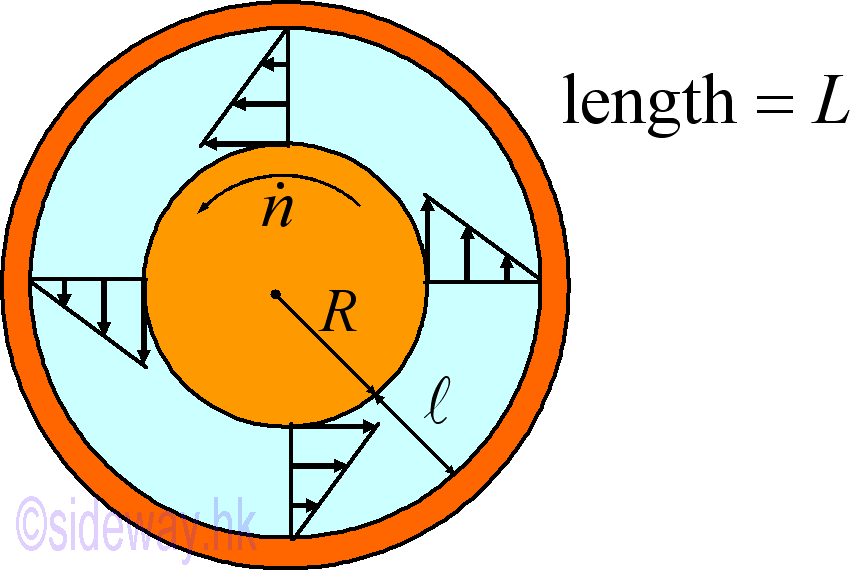
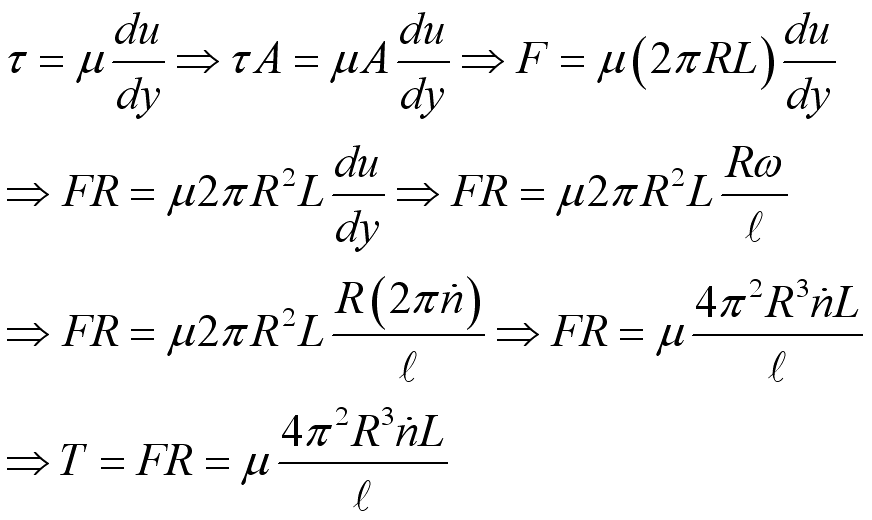
Therefore, the viscosity can be determined by measuring the torque at a specified angular velocity. Link:http://output.to/sideway/default.asp?qno=100100008 Compressibility Fluid PropertiesCompressibilityCompressibility is used to described the easy of volume
change for a fixed massed of fluid due to a pressure change. Bulk modulus is
usually used to characterize the compressibility in an analogous manner to
Young's modulus of elasticity for solids. For a given mass,

and can be approximated by a differential change as
For ideal gas compression or expansion under constant temperature,i.e. isothermal process, 
imply
And for the compression or expansion is reversible and adiabatic, i.e. frictionless and no heat exchange with surroundings under isentropic process, 
where
imply
If the pressure changes are small, gases can be treated as incompressible fluid. Speed of SoundSpeed of sound which describe the speed
of pressure wave propagation in the fluid, is an important parameter in compressible flow.
When a piston moves forward, the generated pressure wave will travel through the
fluid at the speed of sound 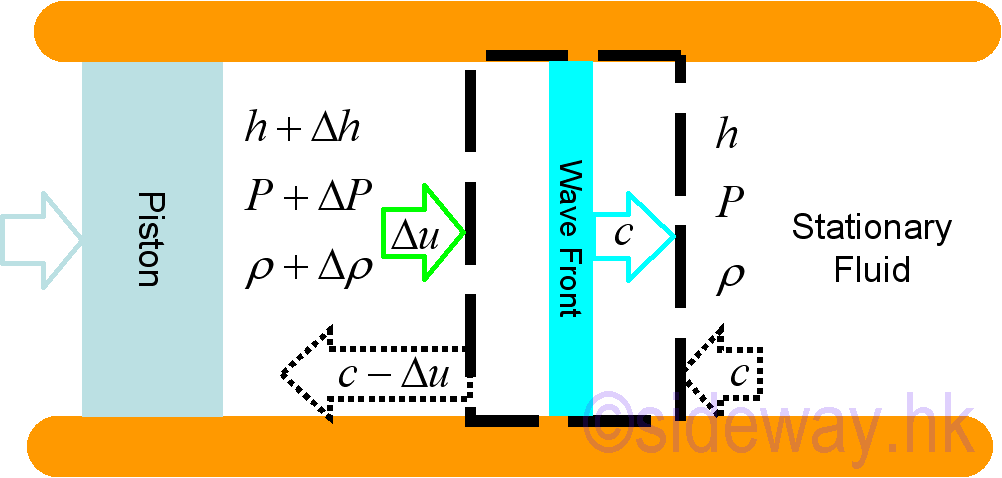
From the conservation of mass, 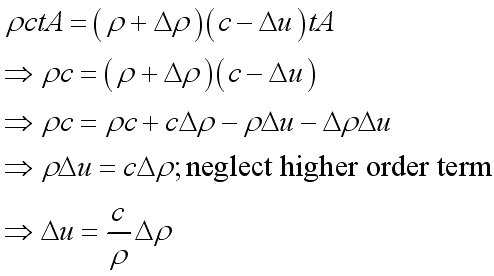
From the steady flow energy balance equation, by neglecting potential energy change and there is no heat or work crosses the boundaries, 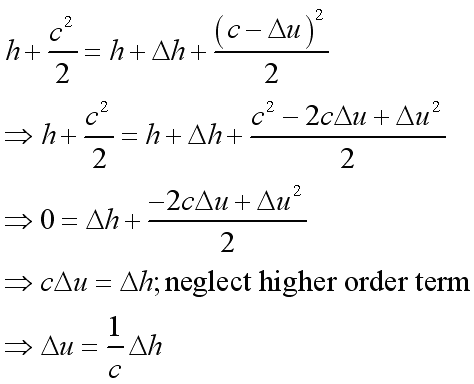
Imply
The small disturbance can also be assumed as an isentropic process, imply 
Therefore
and it can be expressed as
and the seed of sound is a function of temperature only. Mach NumberMach number, Ma, is defined as the ratio of the fluid flow
speed to the speed of sound in the same fluid at the same state, i.e. Link:http://output.to/sideway/default.asp?qno=100100007 Vapor Pressure Fluid PropertiesVapor Pressure (Pv)At a given pressure, a pure substance changes its phase at the saturation temperature, Tsat. At a given temperature, a pure substance change its phase at the saturation pressure, Psat. At a given temperature, the enclosed liquid in a container will evaporate. In phase equilibrium, the pressure exerted by its vapor is named vapor pressure, Pv. For a pure vapor, it is identical to the saturation pressure of the liquid at the given temperature. 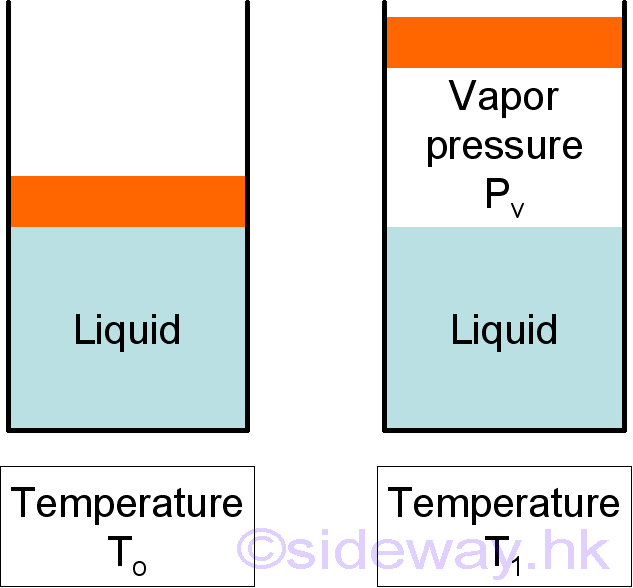
But when the vapor of the liquid is mixed with other gases, for example water vapor and dry air, the pressure caused by the water vaor is a partial pressure only. The atmospheric pressure will be the sum of the partial pressure of dry air and the partial pressure of water vapor. 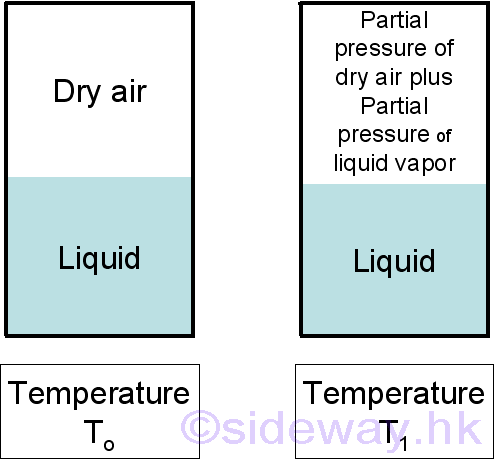
In liquid flow system, the absolute liquid pressure may drop below the vapor pressure at some locations along the flow and cause unplanned locate vaporization, boiling and forms cavities in the liquid as vapor bubbles, named cavitation bubbles. As bubbles move away from the low-pressure regions, they will collapse and generate extremely high-pressure destructive waves. The formation and collapse of cavitation bubbles will cause the drop in performance and the erosion of component parts, for example irregular, narrowed flow passages of valve or pump, impeller blades of hydraulic turbine. And the formation and subsequent collapse of vapor bubbles in a flowing liquid is called cavitation. |
Sideway BICK Blog 01/02 |
||||||||||||||||||||||||||||||||||||||||||||||||||||||||||||||||||||||||||||||||||||||||||||||||||||||||||||||||||||||||||||||
 the volume change of a fluid is inversely proportional to its density. And the
bulk modulus is expressed as
the volume change of a fluid is inversely proportional to its density. And the
bulk modulus is expressed as or
or 

 ;
;


 ,
there will have a small increase in local pressure at the wave front and a small
difference in the
fluid states across the wave front. Considering a moving control volume that
encloses the wave front, fluid will move toward the wave front into the
control volume at a relative speed of
,
there will have a small increase in local pressure at the wave front and a small
difference in the
fluid states across the wave front. Considering a moving control volume that
encloses the wave front, fluid will move toward the wave front into the
control volume at a relative speed of


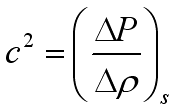 or
or 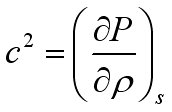
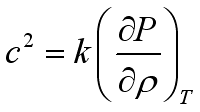

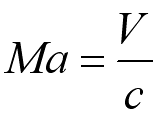 and is another important parameter in compressible flow.
and is another important parameter in compressible flow. 
